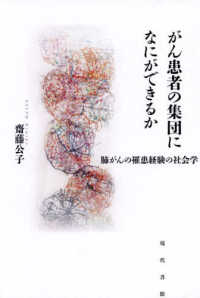Full Description
Drawing on the work of Foucault, Deleuze, and Latour, this book opens up a poststructuralist approach to sport, exercise, and dance research. It examines how to incorporate both articulable expression and visible material elements - theoretically and methodologically - to study the force of the moving body in practice.
This book employs critical concepts including the dispositive, assemblage, and actor network to interrogate and advance our understanding of theory and method in research of physical activity practice. It asks what a poststructuralist approach might mean, especially as it concerns themes such as the body in motion, physical activity practice, network of relations, knowledge, and power for physical cultural studies scholars. Presenting in-depth case studies of adult ballet, Barre, Pilates, coaching, ice-hockey, and cross-country running, this book also examines how researchers and practitioners can begin to collaborate to create innovative instruction, training, and coaching practices.
This is a fascinating reading for advanced students and researchers working in the physical cultural studies, sociology of sport and exercise, sociology of the body, sports coaching, physical education, or social theory.
Contents
Introduction 1
PART 1
Theorizing Poststructuralism
1 What Is Poststructuralism?
2 The Dispositive: Foucault's Articulable and Visible Elements in Power Diagrams
3 Assemblage Analysis: Deleuze's Semiotic System, Pragmatic System, and Territoriality
4 The Actor‑Network Theory: Latour's Methodological Moves
5 The Ethical Formation of the Self
PART 2
Practicing Poststructuralism
6 Foucault in Practice: Ethical Practices for a Recreational Ballet Class
PIRKKO MARKULA AND JODIE VANDEKERKHOVE
7 Practicing Foucault in a BarrePilates Class
PIRKKO MARKULA AND JOY CHIKINDA
8 Movement of Learning: Thinking Differently about Physical Activity Research Practice
9 The "Post" Project: What Else Can Women's Naked Bodies Do?
PIRKKO MARKULA AND ALLISON JEFFREY
10 Poststructuralist Vision for Practice Design in Sport
11 Concussion Return to Play Policies and Protocols: An Actor‑Network Theory Approach
JIM DENISON AND DALLAS ANSELL
12 Running Fast: A Socio‑Material Perspective
13 The Air We Breathe
Finale: Concluding Moves






